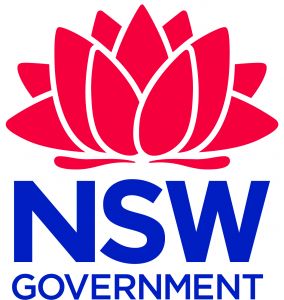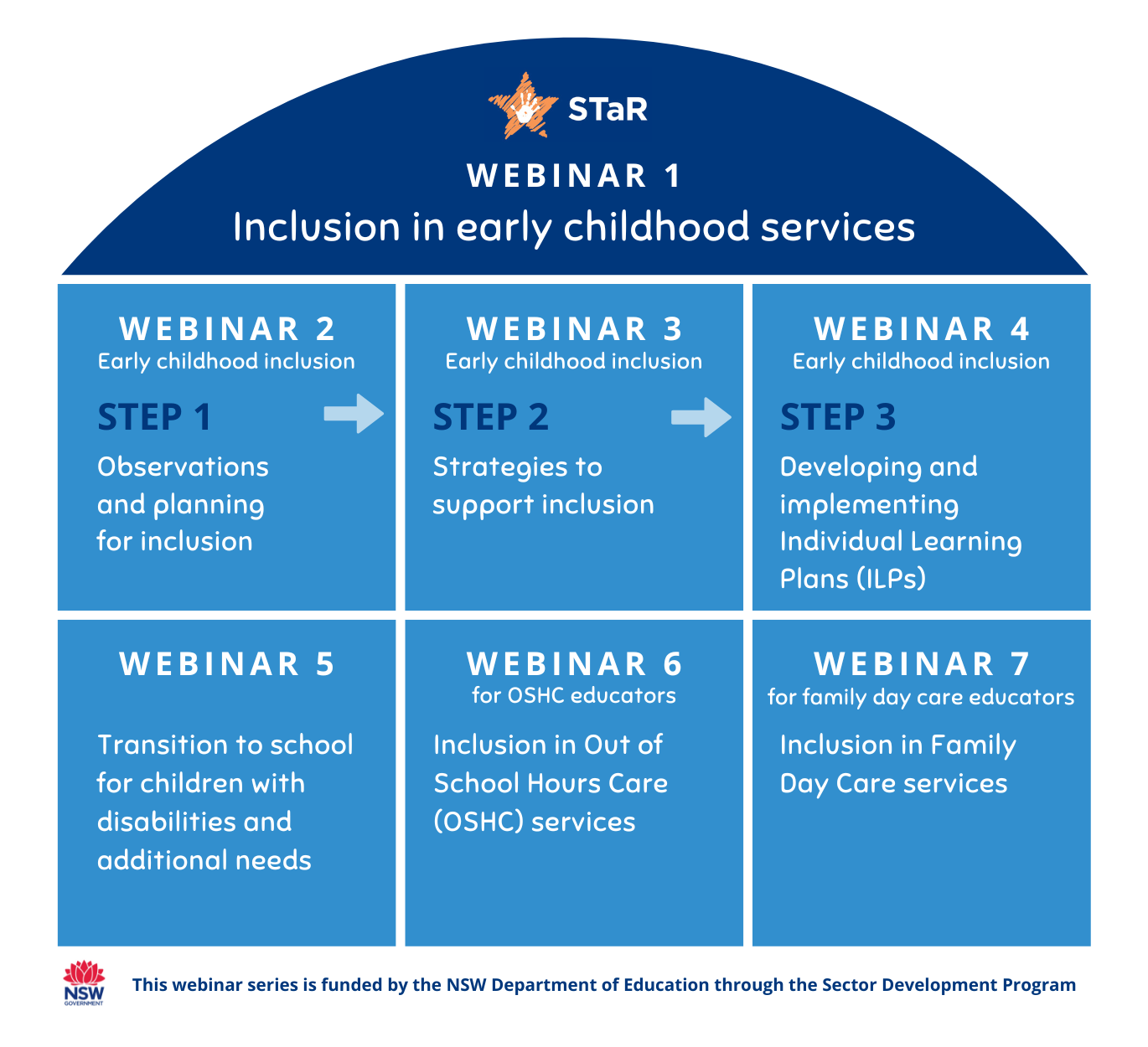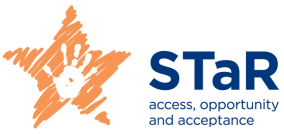
This webinar series has been funded through the NSW Department of Education’s Sector Development Program.
The first webinar in this series will introduce participants to the concept of early childhood inclusion for children with disabilities and developmental delays, including ethical and legal obligations and best practice in early childhood intervention. The following three webinars will assist participants to plan for and implement research-based Individual Learning Plans for young children with disabilities/delays in collaboration with their families and other professionals. The fifth webinar will focus on the transition to school for children with disabilities, the sixth on inclusion in Out of School Hours Care (OSHC) services, and the final on inclusive Family Day Care Services.
Recordings of these webinars (which were delivered between September 2021 and March 2023) and downloadable resources for each webinar are available on the NSW Department of Education website https://education.nsw.gov.au/early-childhood-education/leadership/resource-library/inclusive-educational-programs-for-children-with-disability.


